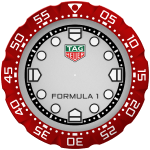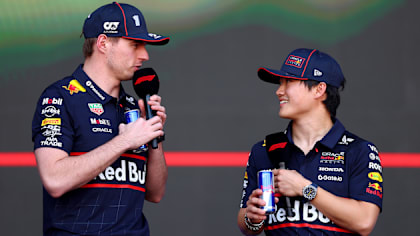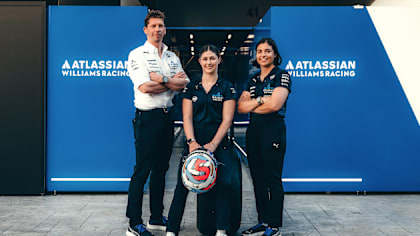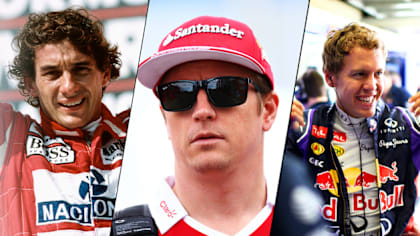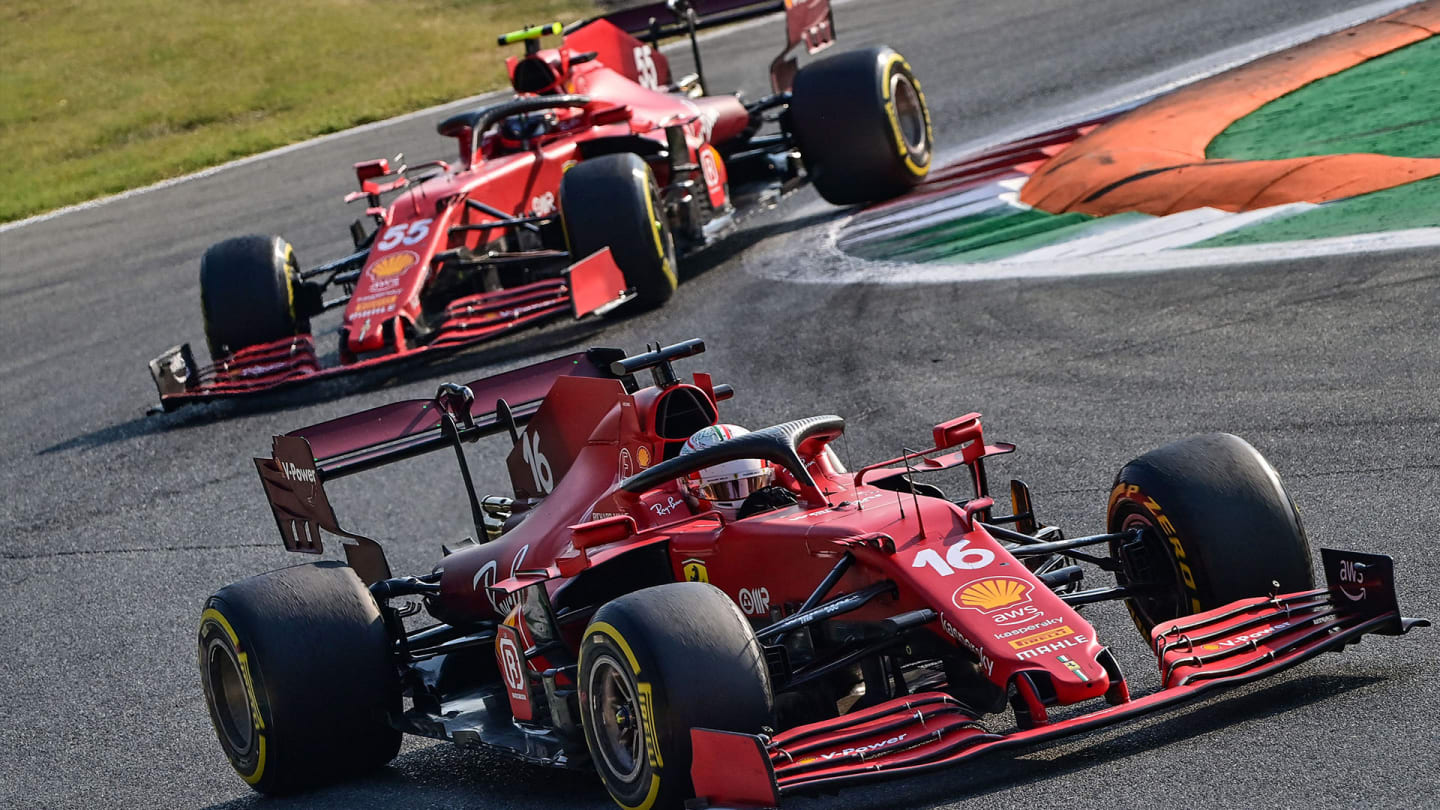
16 - 18 May
Feature
STRATEGY GUIDE: What are the possible race strategies for the Italian Grand Prix?

Share

After a Friday of qualifying action and the second Sprint on Saturday, we take a look at the different strategic options open to the teams ahead of today’s Italian Grand Prix at Monza.
What’s different this weekend?
This season has seen the first trials of the Sprint format, and it brings with it a few nuances when it comes to strategy. Unlike a normal race weekend, the teams all have to complete qualifying on the soft compound of tyre, but then have a free choice for each of the Sprint and the race itself.
READ MORE: Everything you need to know about the F1 Sprint format
So the whole field can choose to start on any of the three compounds, but just like any other race they will have to run at least two different dry tyres over the course of the race (unless it rains).
What are the likely strategies for the frontrunners?
There are no surprises when it comes to the preferred strategy at Monza, where a one-stop is the main target for all teams because of the amount of time lost in the pit lane. At such a high-speed cir-cuit where cars are circulating so quickly, being in the pit lane at 80kph and stationary for a few seconds all adds up to a 21-second time loss.
So only taking that penalty once is always the aim, and the fact that there is a free choice of tyres helps on that front.
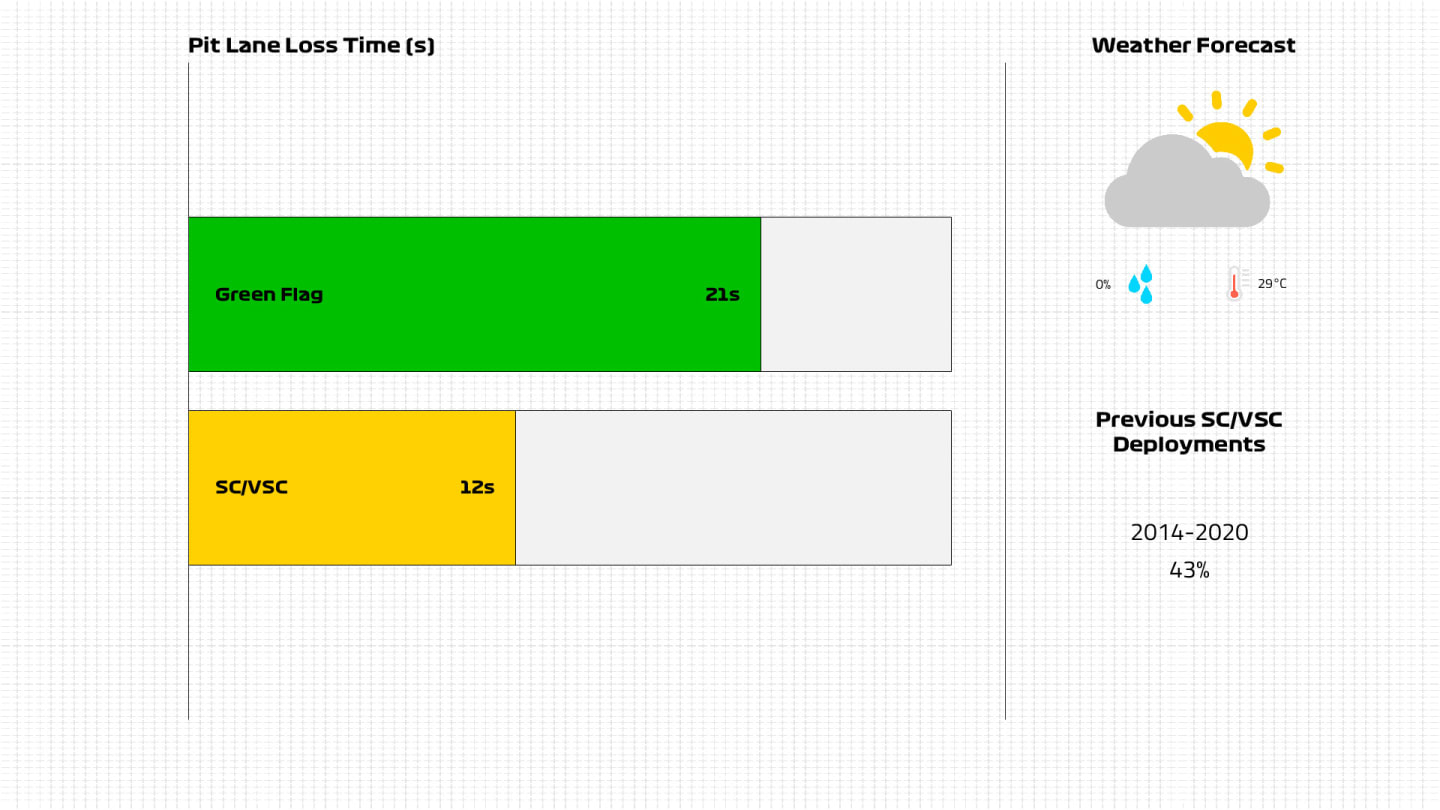
The medium compound is going to be the preferred option for the majority of the field, because it provides flexibility, and the Sprint has actually changed what was expected to be the favoured com-bination. Starting on mediums and switching to hards was the safest bet earlier in the weekend, but the way the soft tyre performed on a number of cars that used them in the Sprint – McLaren, Alpine and Aston Martin suffering no degradation issues – it’s looking quicker to run medium-soft.
The key to this will be the first stint, with the mediums needing to reach at least lap 30. If that is achieved, then a switch to the softs is likely to be picked. If the first stop is needed before lap 30, then the hards can be fitted.
How about the rest of the field?
One thing that was notable about the first Sprint weekend at Silverstone was the lack of variety when it came to the starting tyres in the main race. Only Sergio Perez opted for a different tyre compound – starting on hards from the pit lane after his spin in the Sprint – while the rest of the field were all on mediums.
With that knowledge, it will be interesting to see if anyone tries another starting compound, because it carries a greater chance of being an outlier. That obviously carries risk – and teams can be risk-averse – but it also means you’d be one of the few cars that could reap the rewards.
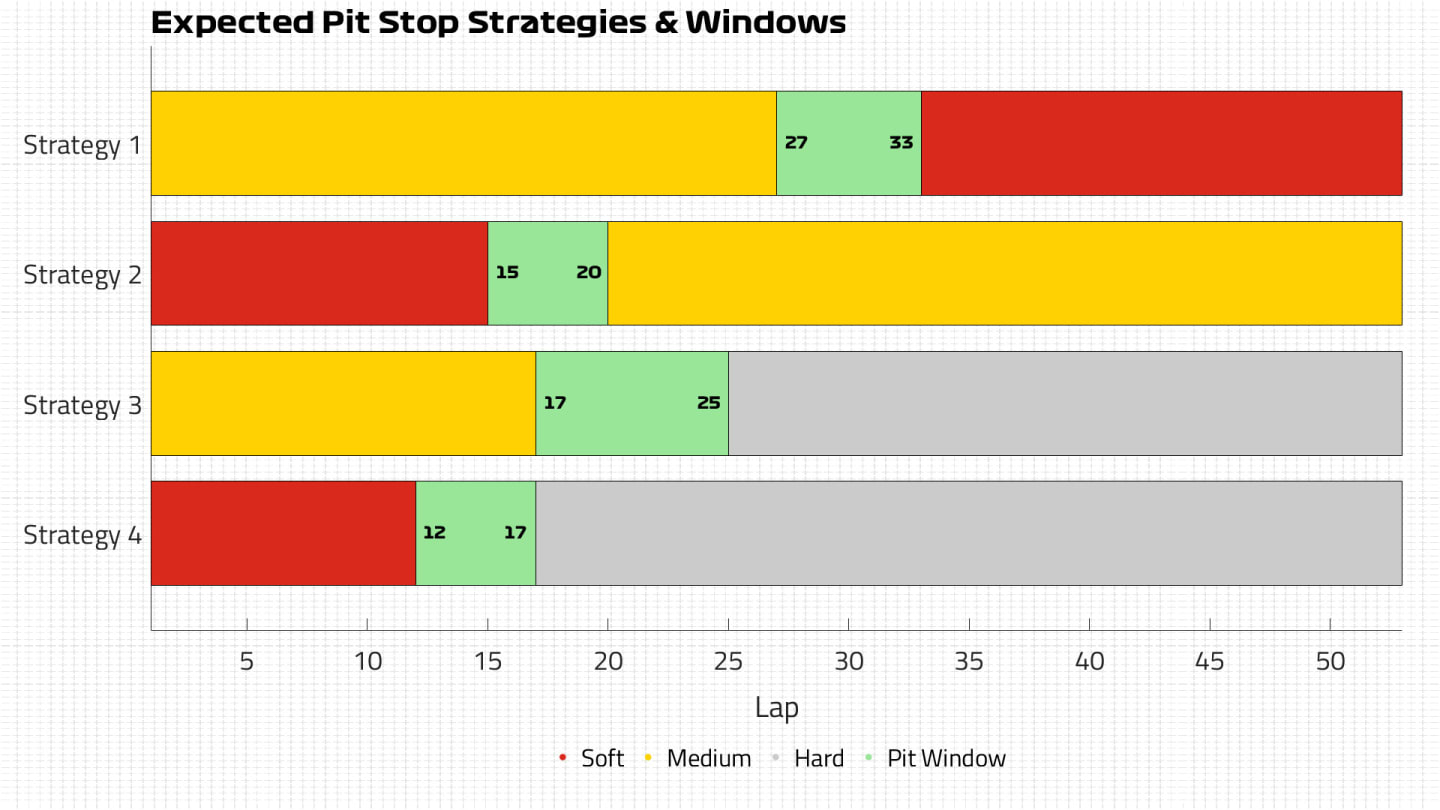
All three tyre compounds have shown themselves to be usable this weekend, and it’s not inconceivable for any one of the three to be picked at the start.
The hard is more likely to be seen because the warm-up was good in the high temperatures, and so there is a trade-off that is worth considering. The first lap would be challenging and a bit of grip off the line could be lost compared to the softer compounds, but from the end of the first lap onwards the hards can then run much longer and provide the most flexibility, either for an earlier stop for me-diums or a later one for softs.
Even the soft could be used, although the lack of flexibility is a drawback. On paper starting on the soft and switching to the hard after 12 laps – or the medium if you can get closer to lap 20 – is a quick strategy, but it forces a pit stop early in the race that might not be brilliantly timed.
READ MORE: Who gained the most positions – and Italian GP grid spots – in the F1 Sprint at Monza?
Where this might be attractive is at Mercedes, as Valtteri Bottas starts from the back. Bottas could drive an attacking first stint and try to make up places on the softs, pit for hards into clear air at the back of the field and then gain places as the other drivers make their first pit stops later than him.
The additional bonus to that approach is it will provide additional data in terms of how the soft tyre is performing, something that is crucial due to the lack of practice running so far this weekend. Mercedes would then have that data for Lewis Hamilton’s second stint.
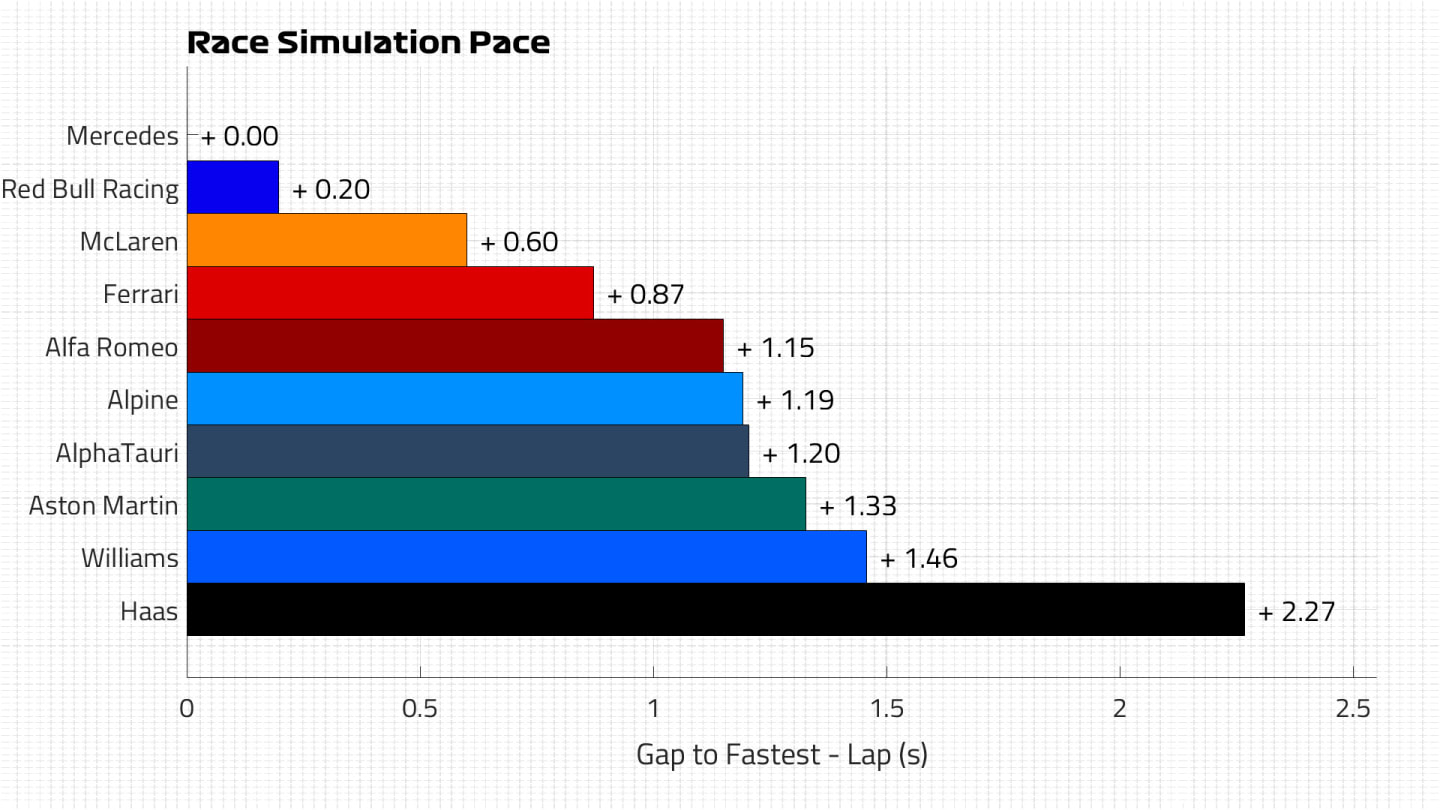
Will anyone try a two-stop?
It’s looking extremely unlikely, but Safety Car interruptions could open up that possibility. As mentioned earlier, the pit lane loss is big in green flag conditions but greatly reduced under either the Safety Car or Virtual Safety Car, dropping to around 12 seconds.
With overtaking looking pretty difficult based on 2020’s race and the Sprint yesterday, teams might look for a bigger performance offset from the tyres by opting for a second stop for either medium or softs if there is an interruption to the race, depending on the tyres they are running on at the time.
Track position is still going to be prioritised the majority of the time, though.
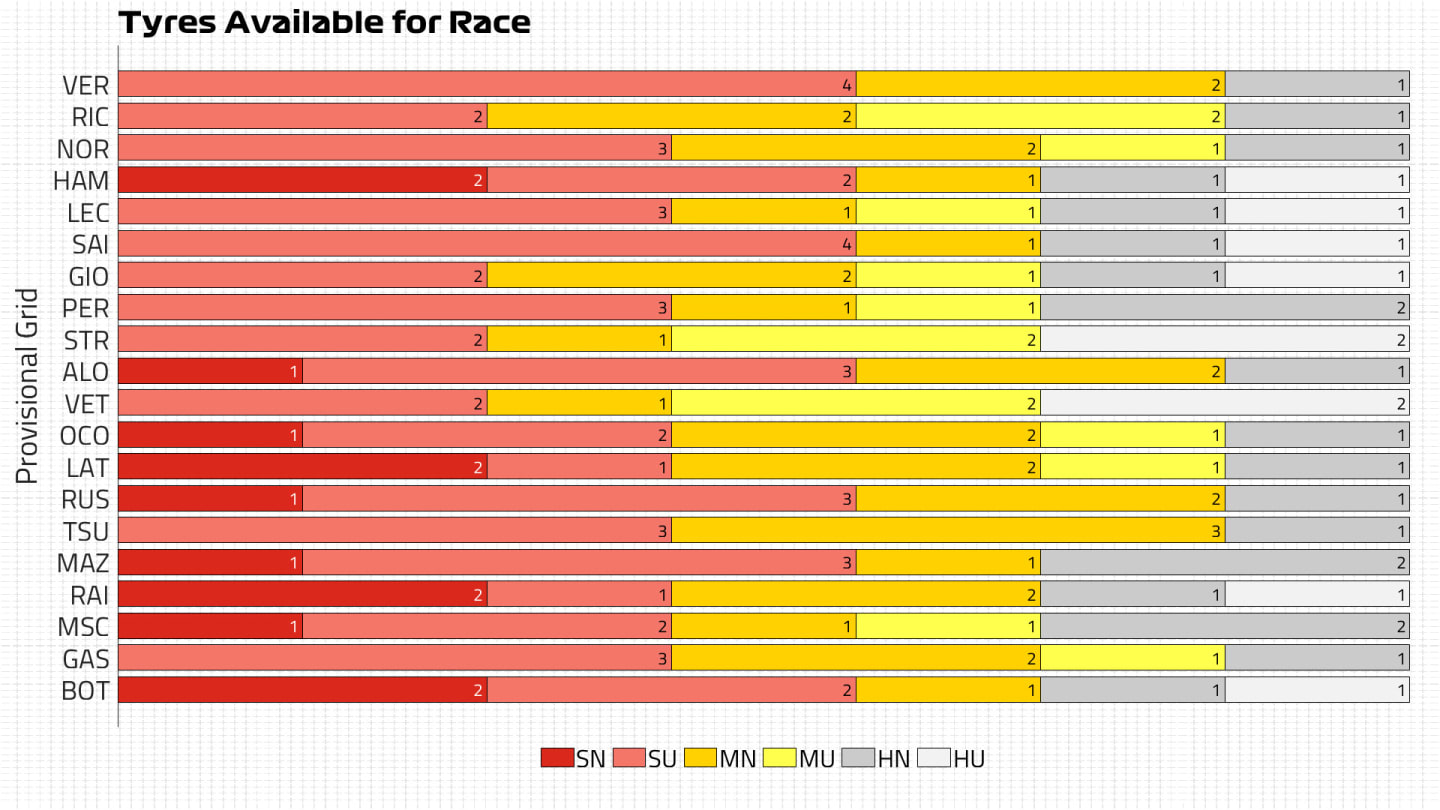
Wait, but what’s the weather doing?
It’s going to be a hot one on Sunday at Monza, and that can bring with it an additional challenge. While the warm temperatures help with tyre warm-up for the harder compounds, they can lead to blistering.
The air temperature is forecast to reach 30C on Sunday afternoon, meaning track temperatures will comfortably exceed that and put a focus on the way the rear tyres are performing. With heavy brak-ing zones into the chicanes and crucial traction areas, any overheating can cost drivers lap time.
HIGHLIGHTS: Missed the F1 Sprint at Monza? Catch all the action right here
Blistering becomes more likely because of the low downforce levels that the cars run at Monza, which in turn lead to a bit more sliding. That sliding sees the surface temperature of the tyres in-crease, and then blistering can occur.
Similar has been seen in the past without posing too much of a problem from a performance point of view, but it’s the main area teams will be looking at based on the forecast, with no realistic threat of rain.
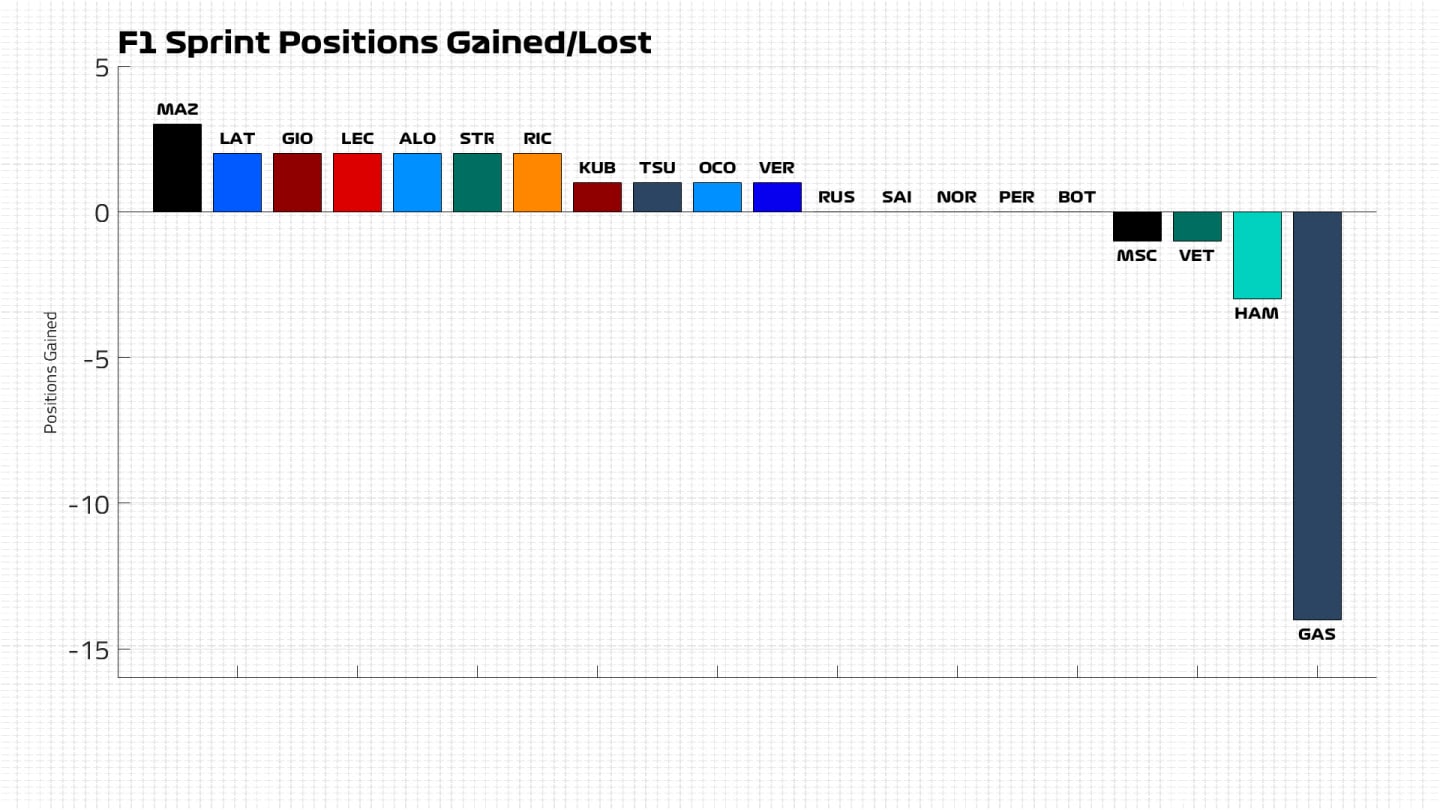
YOU MIGHT ALSO LIKE
News ‘I’m impressed, he’ll be fine’ – Red Bull praise Tsunoda for avoiding ‘intimidation’ of being Verstappen’s team mate
News James Vowles, Jamie Chadwick and Lia Block set to drive Nigel Mansell’s iconic FW14B at Goodwood Festival of Speed
Podcast F1 EXPLAINS: Guenther Steiner on calming rookies, leading a new F1 team and acting with Brad Pitt
Feature Sweary outbursts, emotional celebrations and cheeky jokes – 12 of the most memorable team radio messages

